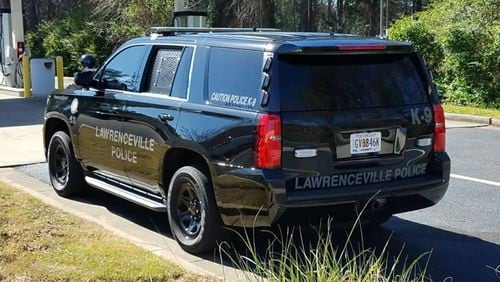Security systems alerted the Lawrenceville Police Department of potential break-ins 2,473 times in 2019. All but six of them were false alarms, according to police data, but officers responded to every one.
The Lawrenceville City Council could soon pass an ordinance designed to cut down on the number of these false alarms. Lawrenceville City Council approved a contract with Florida software company Central Square technologies Monday that will allow the company to create a registry of all alarm systems in Lawrenceville homes and businesses, according to city documents. Central Square will then work with the city to develop an ordinance related to false alarms. What form that will take has not been finalized, but it will likely involve fines; the contract between the city and Central Square describes the partnership as one that will bring revenue to the city.
But revenue is not the primary goal, said Lawrenceville Police Capt. Ryan Morgan. The chief concern is wasting less of officers’ time, he said.
“From our standpoint, in today’s time, with personnel — we’re running six officers short right now — anything we can do to free up more time is important,” Morgan said. “When you get an alarm call, you dispatch two officers because you have to have a backup officer. There’s the response time to get there, and then you have to check the building and make sure it’s not been burglarized. You have to try and make contact with the owner, and if it’s a business, it might be hard to determine who that is.”
The time it takes to go through those steps would be better spent attending to actual emergencies or other police duties, Morgan said. When Morgan was an officer patrolling the streets, he knew of certain buildings that would regularly (but unintentionally) send false alarms to the department, to which officers still responded. Bad weather and power surges could cause the same location to send an alarm three or four times in one night, Morgan said.
When most security systems are triggered, they automatically alert the police department, but with minimal information: a door or window has been opened, or unusual movement has been detected at this address. It might not be easy for officers to find out who owns the home or business they’re going to, which could further delay resolving the incident, Morgan said.
Fining residents and business owners for an excessive amount of false alarms is a practice used in cities nationwide. Marietta Police Chief Dan Flynn helped create a model ordinance that Georgia cities can use to put false alarm penalties in place, said Stan Martin, executive director of the Security Industry Alarm Coalition.
The fees can incentivize people to fix their alarm systems or retrain their employees for proper use, Martin said.
“That causes people to think and creates a behavior that will greatly reduce dispatches,” Martin said.
A draft alarm ordinance from the Security Industry Alarm Coalition recommends police stop responding to alarms at an address after the tenth false alarm. Under that model, a repeat offender would have to verify with police that there was indeed an emergency before officers respond.
“Particularly for larger institutions like banks and big box stores, they may think a fine is just the cost of doing business,” Martin said. “But if they know they’ll lose police response at a certain number of calls, they’ll think about fixing it.”
Sandy Springs has seen a significant drop in false alarms since passing its own false alarm ordinance last year; a month after it was put into place in June 2019, false alarms dropped 77%. Sandy Springs’ approach requires verification that a crime is actually occurring for police to respond; it’s the only city in Georgia that has adopted this policy. It also fines companies, not customers, for false alarms, an approach that the Security Industry Alarm Coalition opposes. A group of security companies sued Sandy Springs over the law, but it was upheld in a federal court ruling last week.
Lawrenceville Police Capt. Morgan sees a response cutoff as a last resort, and hopes introducing fines will assuage the problem.
“There are some agencies that don’t even respond to alarm calls anymore because they just don’t have the time,” Morgan said. “The Lawrenceville Police Department does not ever want to be in that situation. We want to minimize the wasted time that’s out there.”
About the Author






